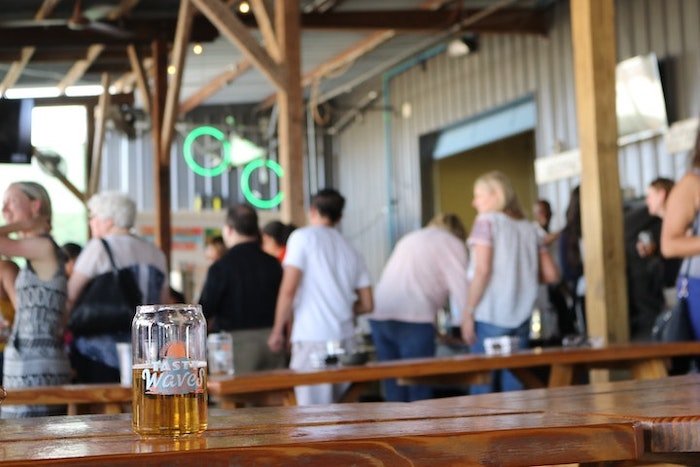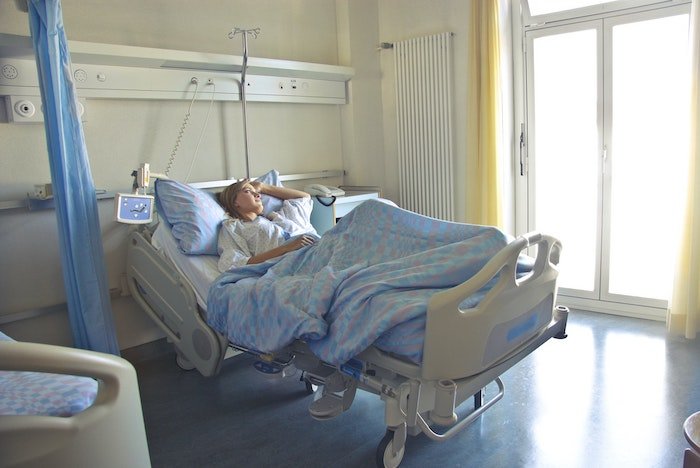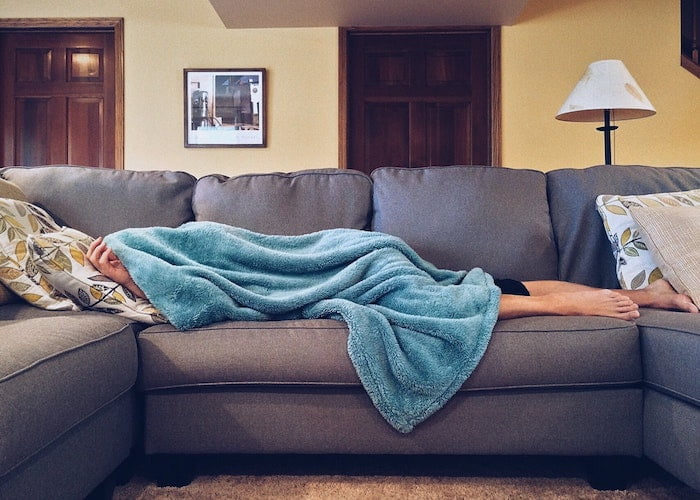Drug & Alcohol Rehab in the West Midlands
As difficult as life is with drug and alcohol addiction, it can be equally or even more difficult to accept that you need help and seek it out.
Acknowledgement of your addiction is challenging for a number of reasons, not least of which, the fact that denying an addiction exists can be a symptom of the addiction itself.
Drug and alcohol addiction is more common than you realise across the West Midlands, and indeed, across the country.
Whilst it can be difficult to admit to yourself that you are struggling with an addiction problem, let alone to others, it can help to know that you’re one of many.
The sad fact is, most people will not be able to find the strength to admit their drug and alcohol consumption has become an issue.

If you can take that initial step, you’re already in a better place than many other people suffering from addiction problems, and the fact that you are here and reading this information means it is something you’ve already considered.
This means you’re already on your way to making the right choice.
Our experienced team of addiction referral specialists can help you with the next step.
If you’ve suspected that there might be an issue, why not contact us for a non-judgemental chat about your circumstances?
If you’re not quite at the point of seeking help, we can help you recognise some of the symptoms in yourself and advise you on the best way to address them.
Once you’ve decided that finding help is the right way forward, we can also inform you of all the treatments available in the West Midlands area that can help you achieve long-term recovery.
Please call our 24-hour helpline today on 0800 326 5559
Drug Addiction Statistics In West Midlands

150,000 adults (6.7%) used any illegal drug in 2017, of which 117,000 adults used cannabis. This roughly translates to four in five adults who took an illegal drug taking cannabis.
In 2017 there were 22,500 opiate and/or crack users in the West Midlands.
The number of 16–19-year-olds reporting using drugs has fallen from 32% in 1996 to 20% in 2012.
In 2019 the rate of deaths due to drug misuse was 5.3 per 100,000, slightly above the UK average, with the worst areas being Stoke-on-Trent and Birmingham.
Please call our 24-hour helpline on 0800 326 5559
Alcohol Addiction Statistics In West Midlands

In 2019 the prevalence of adults drinking more than 14 units per week was 23% of the population, with men being approximately 2/3 of the makeup.
Staffordshire was the worst region for people drinking on more than four days of the week, with approximately 15% of adults reporting doing so.
Alcohol-related deaths in the West Midlands stood at 42.9 per 100,000 people in 2019, significantly higher than the UK average.
Please call our 24-hour helpline on 0800 326 5559
Why Do You Need To Accept That You Have A Drug And Alcohol Addiction Problem?

The main reason to acknowledge your addiction is simple – if you don’t, it will get worse. Addictions increase in severity over time and along with this come more significant side effects.
Side effects can manifest into long-term physical and mental health conditions, some of which are life-threatening. The main benefit, therefore, is self-preservation.
Unfortunately, some of the negative effects of long-term drug and alcohol use, such as denial and depression, can make it very easy to overlook the need for self-preservation.
Some people find it helpful to consider more tangible elements of their life that are affected by their substance abuse, as they are often easier to acknowledge.
Other than your own mental and physical health, drug and alcohol addiction can lead to the following issues:
- Destruction of relationships
- Loss of trust from family members and friends
- Detrimental effects to your livelihood and career options
- Financial ruin
- Increased likelihood to put yourself and/or others at risk
- Increased chance of taking part in criminal activity
- A general change in your own mood and personality
The very nature of addiction means that it’s incredibly difficult to let go of your substance use, often because you either don’t believe it’s possible to do it or believe that life will be too painful without it.
In reality, whatever stage of addiction you are at, there is always hope.
You can recover, and you can live a fulfilling and happy life as a sober person. Anything you’ve lost through addiction that matters, you will likely be able to get back, once you have recovered. It’s not too late.
The sooner your addiction problem is addressed, the better your chance of making a long-term recovery is and the easier it will be to achieve.
At OK rehab we can help you to see how attending rehab in the West Midlands offers you the best possible chance of overcoming your addiction.
Please call our 24-hour helpline on 0800 326 5559
Intervention

Staging an intervention can feel like an overwhelming action to take for somebody who has a loved one that is suffering from a drug or alcohol addiction.
Watching their decline and the consequences that their behaviour can lead some people to back away from the person.
However, if you are someone in the West Midlands area who wants to help someone you care about that suffers from a drug or alcohol addiction, then an intervention may be the first course of action.
An intervention sounds like a grand event which involves a packed room of people circling around the drug and alcohol addiction sufferer, telling them the error of their ways.
But it doesn’t have to be like that. An intervention can include as few or as many people as you like, such as:
- Family members
- Close friends and colleagues
- One to one
- A doctor or other medical associates
- Faith members
The aim of intervention for drug and alcohol addiction is to enlighten the one suffering about the treatment options that are open to them.
It is not uncommon for drug and alcohol addiction sufferers to be unaware of their own addiction at the point of an intervention, so the information that is being fed to them on treatment options can be eye-opening.
An individual may feel high levels of anger, resentment, shame or humiliation during the intervention process.
This may be the first time that they are confronted with their addiction problem, and it will most likely trigger an emotive reaction.
Therefore, it is important to follow some simple principles in planning an intervention in the West Midlands to increase the likelihood of a successful outcome.
In the first instance, you might want to contact an organisation that specialises in interventions in the West Midlands area.
They could offer tips and techniques that they have learnt from other interventions they have been involved with or even offer to help plan and attend the intervention.
It’s important to get the right people in the room for the intervention. As we have already mentioned, interventions can be highly emotional experiences for the one suffering from the addiction.
People present need to be able to keep calm during any angry outbursts and be able to communicate their feelings in a calm and compassionate manner.
Doing your research on treatment options is crucial. The one suffering from the addiction may never have entertained the idea of going to a drug and alcohol rehab in the West Midlands before.
It is important that all the relevant facts about drug and alcohol rehab in West Midlands are presented in a non-threatening and sympathetic manner.
Please call our 24-hour helpline on 0800 326 5559 for more assistance today.
Do You Provide Support To Friends And Family Members Hoping To Refer Someone For Rehab Treatment?

Here at OK Rehab, we understand that you may also want to seek rehab treatment on behalf of your friends and relatives.
It can be incredibly difficult to witness those we care about suffering the effects of drug and alcohol addiction, not to mention the impact their addiction has on your own life.
We can offer advice about how to best approach a loved one about seeking help or even help you to set up a suitable treatment programme for them.
The important thing to note, however, is that the person with the addiction problem will need to both be willing to attend the required addiction treatment and commit to their recovery.
As much as you might want to take this decision out of their hands, it is impossible to force addiction recovery.
You can, however, speak to us in confidence and we will be happy to do everything that we can to support your intervention.
Call our team today on 0800 326 5559
How Do I Know If I Am Addicted?

Whether you have been the target of an intervention or are starting to explore the option of being admitted into drug or alcohol rehab in the West Midlands, it is a good idea to get an understanding of your own addiction.
Taking part in a CAGE questionnaire can be a useful place to start in understanding your own drug or alcohol addiction.
The CAGE questionnaire is a set of questions that are designed to understand the severity of your addiction.
It is a common method used by GPs and drug and alcohol rehabs in West Midlands to assess if an individual is addicted to alcohol or drugs.
The CAGE questionnaire has been designed as a set of four simple questions to get a picture of whether an individual is suffering from a drug or alcohol addiction. The questions focus on the level of drug and alcohol consumption and how this makes the sufferer feel.
It consists of the following four questions:
- Do you feel the need to cut down on how much you drink?
- Have you ever felt angry or annoyed when someone else told you to cut down on your consumption or commented on how much you drink?
- Have you ever felt guilty about how much alcohol you drink?
- Have you ever started drinking in the morning to get yourself up?
The same set of questions is used to assess the level of someone’s drug addiction.
If you think you might be suffering from a drug or alcohol addiction in West Midlands but are unsure, then you should answer the four CAGE questions and use the answers to form a discussion with your GP or another medical professional.
Please call our 24-hour helpline on 0800 326 5559
The Benefits Of Speaking To Professionally Trained Addiction Counsellors

Once your detox is complete, your treatment programme will provide substantial mental health treatment and psychological support.
You will have access to professional addiction counsellors who will provide one-to-one sessions, addressing your triggers and the reasons your addiction began.
A range of other psychological therapies will be added to your individual programme, these could include cognitive behavioural therapy, group therapy, support groups and family therapy.
You will also have the opportunity to attend alternative supplementary therapies, such as music and art programmes, in support of your rehab.
Throughout your time working with addiction counsellors, you will both gain a new perspective on your addiction and learn personal coping mechanisms to help prevent relapse post-rehab.
The structured and highly comprehensive addiction recovery treatment programmes available at our partner facilities in the West Midlands offer the absolute best opportunity to recover from your addiction.
To learn more about how addiction counselling can help you, call us today on 0800 326 5559
How To Secure A Place At A Drug And Alcohol Rehab Facility In The West Midlands

Once you’ve made that life-changing commitment to recover from your addiction, it’s time to decide what help you need and find out how to get it.
Here at OK Rehab, we will use an initial assessment to determine the severity of your drug and alcohol addiction, as well as how significantly your life is impacted by any side effects that you may be experiencing.
From here, we will be able to provide experienced recommendations about the types and locations of trusted rehab treatment centres in the West Midlands area.
Once you’ve chosen your addiction treatment programme and the most convenient treatment facility for your needs, we will be able to help you with a pre-admission referral service.
This helps us to obtain a place for you, without the need for a GP referral or a lengthy waiting list.
We can provide support throughout the West Midlands, with treatment centres available in the following local areas, however, we can also organise treatment further afield should that be your preference:
Please call our 24-hour helpline on 0800 326 5559
How Much Does Drug And Alcohol Rehab Cost In The West Midlands?

Drug and alcohol rehab in West Midlands varies wildly in price depending on the type of rehab treatment that you decide to undertake.
Drug and alcohol rehab in West Midlands pricing has several factors: inpatient or outpatient treatment, length of stay and quality of rehab facility.
Inpatient and outpatient treatment play a major role in the price of the overall rehab treatment.
As an inpatient in West Midlands, you will be a temporary resident in the rehab facility, and the cost of this cover will be reflected in the price.
An inpatient will have higher levels of staff costs, food, and drinks costs, along with the price of the room.
Rooms can either be private or shared. For a private room in a drug and alcohol rehab in West Midlands, the average price range is between £3,000 and £6,000 for an initial 10-day stay. For a shared room, the price is reduced to £2,000 – £4,000.
A 10-day period is a typical minimum for a stay in drug and alcohol rehab in West Midlands, as this is the length of time for a physical detox from most drugs or alcohol.
Once this 10-day period is over, a patient will then be advised to move on to phycological treatment in the form of therapy.
This is usually a 28-day period which comes at a typical cost of £12,000 for a private room or £6,000 for a shared room in drug and alcohol rehab in the West Midlands.
On the other hand, outpatients are treated at home with regular visits scheduled to the rehab facility for treatment. This greatly reduces the cost, and the appropriateness of this option will be discussed during the rehab assessment.
Some drug and alcohol rehab in West Midlands are more expensive than others.
This is down to several things, including the physical location of where the facility is based, the level of quality that is on offer from the rehab facilities, and the types of treatment that are available.
There are different types of drug and alcohol rehab in West Midlands to suit a wide range of needs. It is important that you pick the one which is most appropriate for your own.
Please call our 24-hour helpline on 0800 326 5559
Is Drug And Alcohol Rehab Covered By Health Insurance?

With these costs in mind, it may have left you feeling overwhelmed at how you can afford rehab treatment in the West Midlands.
One option for funding your drug and alcohol addiction rehab treatment is to ask your private health insurance – if you have one – to cover the cost.
It’s likely that a private health insurance provider could cover the cost of your rehab treatment in the West Midlands. If you are not sure if this is covered under your insurance, there are a few things you can do to check.
Review the insurance package you took out with your provider to understand the level of cover, any exclusions, voluntary excess amount and if they have a restricted list of treatment facilities.
If you are still unsure after reading through this, call your insurance provider’s customer service hotline.
If you do call your provider, it is worth having some of the following in mind:
- Whether your policy covers inpatient rehab treatment?
- How many days at rehab are covered?
- Are certain rehab medications excluded?
- Can you access both inpatient and outpatient treatment?
- Are you covered for the substance you’re addicted to?
If you have drug and alcohol addiction rehab treatment included on your health insurance policy, it is important to let the rehab facility know that the cost is being covered by your insurance provider.
Many health insurance providers will cover the cost of drug and alcohol rehab treatment, including Aviva, AXA, and Bupa.
For more information, please call our 24-hour helplineon 0800 326 5559
Is Drug And Alcohol Rehab Covered By The NHS?

The NHS does offer to fund drug and alcohol rehab treatment in the West Midlands, but spaces can be limited.
Private rehab facility providers may only offer a certain proportion of their beds for NHS-funded patients, which can make the waiting times longer for inpatient treatment under the NHS.
It is not unusual for people suffering from a drug and alcohol addiction to be waiting months before gaining a place in a rehab facility.
The NHS does not have its own facilities for drug and alcohol rehab in the West Midlands.
Patients who undergo treatment for their addiction will be treated at a private facility, with the cost of their treatment funded by the NHS.
If you do not want to wait for weeks or months before entering drug and alcohol rehab in the West Midlands, then you might be better off going through your health insurance provider or arranging a payment plan for private payment.
For more information, please call our 24-hour helpline on 0800 326 5559
How Long Does Drug And Alcohol Rehab In The West Midlands Last?

The length of time that you spend in drug and alcohol rehab in the West Midlands is based on the severity and type of addiction that you are suffering from.
Most drug and alcohol rehab treatments consist of physical treatment and psychological treatment, such as therapeutic interventions.
If your treatment requires physical treatment in the form of detox, this will require a ten-day stay as a minimum.
During those ten days, you will undergo a physical detox from the drug or alcohol so that you can overcome the withdrawal symptoms before starting the psychological treatment.
From there onwards, you will most likely stay in rehab for a further two-to-three weeks for psychological treatment. This means that your stay could be for 28 days.
If your addiction is severe or has further complications, such as a dual diagnosis, then your stay could last anywhere up to 90 days.
For a more accurate estimation of how long your rehab treatment will last, call us today on 0800 326 5559
NHS vs Private Addiction Treatment

Treatment in drug and alcohol rehab in the West Midlands can be incredibly costly. It is a major financial investment in yourself to undergo treatment and tackle your addiction.
Therefore, it is important that you are honest with yourself about your current circumstances and what you can afford.
Not everyone can afford to pay for a 28-day stay in rehab outright. The medical bill can go into the tens of thousands of pounds, which is unattainable for most people.
A lot of people suffering from drug and alcohol addiction have other societal issues, such as unemployment and levels of debt, which only further exacerbates the problem of funding.
So, if you are struggling with household income in general, then NHS treatment may be the best course of action.
Nevertheless, NHS funding comes with the risk of long waiting times to be admitted into drug and alcohol rehab in the West Midlands.
Waiting for months may not be suitable for people who have a severe addiction or need to beat their addiction before a certain event in the future.
Furthermore, the level of treatment required for your drug or alcohol addiction may play a factor in which funding avenue to take.
Certain treatments are not available on the NHS for drug and alcohol rehab in the West Midlands. Some doctors, clinicians and therapists will only offer their services to privately funded inpatients.
So, if you are concerned by the long waiting times that can come with an NHS waiting list, or you want specific treatment which is not available on the NHS, then you may have to arrange for a privately funded rehab treatment plan.
For more guidance choosing between private and NHS treatent, call us today on 0800 326 5559
Inpatient Or Outpatient Treatment In The West Midlands

When people hear of ‘rehab’ they can sometimes get the wrong impression of what that actually looks like.
TV and film can portray rehab to be a residential facility that is located in the wilderness with no contact with the outside world. This is quite far from the truth.
Alcohol and drug rehab in the West Midlands comes in two forms: inpatient and outpatient.
An inpatient is somebody who is admitted into a rehab facility and undergoes treatment whilst being a temporary resident in the rehab.
An outpatient is someone who remains at their home address during treatment and attends the rehab facility regularly to receive treatment and medication.
Both forms of treatment share the same aim of helping those suffering from an addiction to come off the alcohol or drug substance that they are addicted to.
But there are several factors to consider before choosing which option is right for you.
Outpatient treatment in the West Midlands is far more affordable than inpatient treatment. This is because you don’t have the same associated costs that come with being a temporary resident.
Your motivation levels to overcome the addiction are a big factor in deciding which course of treatment to take.
It requires a high level of motivation and resilience to complete outpatient treatment, as you don’t have the same level of 24/7 care as an inpatient. This can make periods like the physical detox particularly challenging as an outpatient.
The severity of your alcohol and drug addiction can determine whether to be an outpatient or an inpatient.
Typically, outpatient treatment is recommended for those with mild or moderate addictions. Whereas those with a more severe addiction who are still heavily taking drugs and alcohol, inpatient treatment will be recommended.
To learn more, call our team today on 0800 326 5559
What You Need To Know About The Detox Process

As you will likely be aware, detoxification is a significant part of addiction recovery. Although it’s known to be unpleasant, this part of the process is essential in order to reduce your body’s physical dependence on drugs and alcohol.
This will minimise cravings and refocus your efforts on staying clean and sober. For this reason, detox is usually the initial treatment in any structured rehab programme.
The purpose of a detox is to remove the toxins that remain in your body from prior drug and alcohol use.
The time it takes for substances to fully leave the body will vary depending on what they are, how long you’ve used them and in what quantities.
Withdrawal symptoms are likely throughout the detox process, and again, these will vary in type and severity, depending on usage.
When you attend a detox clinic within a professional private rehab facility, the process will be monitored by trained medical professionals.
This offers the safest possible opportunity for drug and alcohol detox, as it allows your withdrawal symptoms to be addressed and minimised where possible. It also provides access to emergency immediate medical care, if it is required.
Although challenging, undergoing full detox is an essential part of the rehabilitation process. Drug and alcohol addiction consist of both physical and physiological connections and it’s impossible to break one without the other.
It’s important that both aspects of your addiction and the individual reasons behind them are addressed as a part of your treatment programme.
Once the physical connection has been broken, you can focus on your psychological recovery more successfully.
To learn more about detox in the West Midlands, please call our 24-hour helpline on 0800 326 5559
Why You Should Avoid Attempting Home Detox

Here at OK Rehab, we will almost always recommend that you attend detox at one of our West Midlands-based rehab facilities. Whilst there are home detox services widely available, these do not offer the best opportunity for a successful recovery.
It is also risky to attempt independent detox, as some of the associated withdrawal symptoms can be dangerous and in some cases life-threatening.
It is therefore essential that you have professional medical support available to administer and monitor your detox safely. They may be able to prescribe medications to assist with the withdrawal symptoms of some substances.
As well as making this safer and more comfortable for you, it reduces the chance of relapse significantly when you are being monitored.
To learn more about home detox in the West Midlands, please call our 24-hour helpline on 0800 326 5559
Alcohol Detox & Rehab In The West Midlands

If you are addicted to alcohol in the West Midlands area and are looking to be admitted into a rehab centre, then you will need to complete physical alcohol detox.
Alcohol is a physically addictive drug, meaning that your body is physically dependent on alcohol and will give off physical cravings when it is withdrawn. Therefore, detox is required before any psychological treatment can begin.
Alcohol withdrawal can be a dangerous and unpleasant period, especially if the alcohol addiction is severe.
Therefore, it is usually advised that detox takes place within a rehab facility so that staff can monitor you closely for withdrawal symptoms.
Alcohol withdrawal symptoms can be mild to severe, including:
- Dilated pupils
- Seizures
- Irritability
- Insomnia
- Delusions
- Hallucinations
- Anxiety
- Vomiting
Based on your individual circumstances, these withdrawal symptoms could last anywhere from a few hours to a few days. Whilst this sounds scary, it is unlikely that you will experience all the symptoms listed above.
To learn more about alcohol detox and rehab in the West Midlands, call us today on 0800 326 5559
Rehab For Cocaine In The West Midlands

Cocaine is a highly addictive drug that manifests itself through a range of physical and psychological symptoms. These can include:
- Increased heart rate
- Lack of appetite
- Mood swings
- Paranoia
- Engaging in high-risk behaviour
If you think that you are addicted to cocaine, then you may need to attend a drug rehab in the West Midlands.
It is important to seek out treatment for cocaine addiction. Cocaine has many damaging long-term health consequences if not treated, such as psychosis, increased risk of stroke and heart attack, and loss of smell.
You may have noticed that you have a cocaine addiction if you are suddenly taking more of the same drug to achieve the same effect.
Another sign could be that your relationships and job performance are being adversely affected because of your cocaine use.
If you do enter drug and alcohol rehab in the West Midlands for your cocaine addiction, it is unlikely that you will need to undergo a 10-day detox period.
Cocaine is not a physically addictive drug, but it is a psychologically addictive drug. Therefore, rehab treatment will focus on the phycological treatment of the addiction.
To learn more about cocaine rehab in the West Midlands, call us today on 0800 326 5559
Rehab For Heroin In The West Midlands

Heroin is a highly destructive drug which can have devastating consequences on a person’s life.
Many people who are addicted to heroin also take other substances in conjunction, which can lead to serious illness or even death.
Signs and symptoms of heroin addiction include:
- Sudden weight loss
- Needle marks
- Memory loss
- Inability to function
- Stealing or lying
If you think that you are addicted to heroin, then you will likely need to attend a drug rehab in the West Midlands.
Heroin addiction carries unique long-term effects due to the nature of the substance and the method in which it is administered.
Heroin users have an increased risk of contracting HIV by injecting contaminated needles. There is also the risk of heroin users developing a collapsed vein, arthritis and changing the neuroplasticity of their brains.
Heroin is a physically addictive drug and will require a detox period within the rehab in the West Midlands.
Once the detox is over, therapy sessions will be used to help overcome the phycological damage caused by the drug addiction.
To learn more about heroin detox and rehab in the West Midlands, call us today on 0800 326 5559
Rehab For Cannabis In The West Midlands

Cannabis is a widely used drug and has increased in prevalence as more countries and states around the world legalise its use.
Nevertheless, cannabis can cause some serious long-term health and lifestyle consequences.
Symptoms to look out for in a cannabis addiction include:
- The increased appetite (munchies)
- Bloodshot eyes
- Hallucinations
- Paranoia
- Irritability
If you think that you are addicted to cannabis, then you may need to attend a drug rehab in the West Midlands.
Despite its increase in popularity in recent years, cannabis can cause a range of mental health problems.
If used frequently over a long period of time, it is possible to develop schizophrenia, anxiety and psychosis. This can lead to someone withdrawing from social situations and losing interest in their hobbies and work.
Treatment for a cannabis addiction included a series of therapeutic interventions within a drug and alcohol rehab centre. Cannabis is not a physically addictive drug and does not require a detox period.
To learn more about cannabis rehab in the West Midlands, call us today on 0800 326 5559
Types Of Therapies On Offer In The West Midlands Rehabs

Therapy can be a very intrusive form of treatment and requires an open mind to allow it to work.
If you are considering attending drug and alcohol rehab in the West Midlands, then you will likely come across one or several of the following therapy techniques:
- Cognitive Behavioural Therapy (CBT)
- Dialectical Behavioural Therapy (DBT)
- Brief Interventions
- Motivational Interviewing (MI)
- Holistic Therapies (e.g., equine therapy/music therapy/art therapy/adventure therapy)
- Group Therapy
- Individual Therapy
- Family Therapy
- Co-dependency Treatment
- Twelve-Step Facilitation Therapy (TSF)
Please call our 24-hour helpline today on 0800 326 5559
The Importance Of Dual Diagnosis For Co-Occurring Disorders In Rehab

A dual diagnosis is when you suffer from a mental health problem in parallel to a drug or alcohol addiction.
This is not uncommon as many people who suffer from mental health issue use drugs or alcohol as a coping mechanism, and lots of people who suffer from addiction develop mental health problems.
Having a dual diagnosis can make your rehab treatment complex as both issues will need to be addressed to increase the chances of overcoming your drug and alcohol addiction.
It is important to know if you have a dual diagnosis as your treatment plan will need to be tailored to treat the causes and behaviours of the mental health issue and the addiction issue in the appropriate way.
Please call our 24-hour helpline today on 0800 326 5559
How Rehabs Help With Relapse Prevention

Attending drug and alcohol rehab in the West Midlands is only one part of your entire recovery journey.
Hopefully, you will have either realised you have an addiction yourself, been made aware through an intervention, or been diagnosed by a GP during an appointment.
This will then have led you to seek out rehab admission to treat the addiction both physically and mentally.
Rehab will offer you the foundations to live a healthier and more sustainable life when you finish your treatment. One of the ways that the rehab will try to ensure this is by working with you to create a relapse prevention plan.
A relapse prevention plan contains information on your addiction that you will have picked up during your treatment, as well as tips on how to stay sober when you leave rehab.
To learn more, call our team today on 0800 326 5559
Aftercare And Support Services

Everyone who leaves drug and alcohol rehab in the West Midlands is encouraged to seek out and become involved in aftercare and support groups to help them in their recovery.
There are many community groups in the West Midlands area, including:
- Alcoholics Anonymous
- Narcotics Anonymous
- Cocaine Anonymous
- Outpatient treatment
- Al-Anon Family Group Meetings
- SMART Recovery
- Home Detox
Please call our 24-hour helpline on 0800 326 5559
Help And Support From The OK Rehab Team

You’ve already taken the first step by acknowledging that you may have an addiction problem, so reach out for support from our team at OK Rehab today and we’ll help you take the next steps towards long-term recovery.
Please call our 24-hour helpline today on 0800 326 5559





